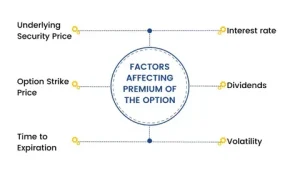Big changes are coming to the way UK companies are set up and managed. If you’re a director, a person with significant control (PSC), or someone who submits filings to Companies House, you’ll soon need to verify your identity. This isn’t just an admin update — it’s a major part of the UK’s crackdown on economic crime.
Here’s a clear, down-to-earth guide on what’s changing, who it affects, and what you need to do.
Who needs to verify?
In short, quite a few people:
- Company directors (new and existing)
- People with Significant Control (PSCs) – basically, those who own or control the company
- Anyone who files on behalf of companies – including accountants, solicitors, and company secretaries
If you’re involved with running or managing a company in any official capacity, this likely applies to you.
When do you need to verify?
The rollout has already begun:
- From April 2025, a voluntary identity verification system went live using the new GOV.UK One Login.
- Mandatory checks are expected to kick in by autumn 2025 for new company officers.
- Existing companies will have 12 months to get all relevant individuals verified.
If you don’t verify when you’re supposed to, your role may not be legally recognised, and you could face penalties.
How does it work?
There are two ways to complete Companies House identity verification:
- Do it yourself via GOV.UK One Login
You’ll need a form of ID like a UK passport or driving licence, and you’ll be asked to do a “liveness check” — that’s a quick selfie video to prove you’re a real person. It’s fairly straightforward if you’ve used similar systems for online banking or digital government services. - Go through an agent (authorised corporate service provider)
If you work with an accountant or company formation agent, they might be able to verify you instead. They’ll need to be registered and regulated under anti-money laundering laws, and they’ll have to confirm that your ID has been checked properly.
Once verified, you’ll be issued a unique ID number that stays with you for all your Companies House roles.
What happens if you don’t verify?
Quite a bit, actually.
If you’re a new director or PSC, you won’t be able to take up your role unless you’ve completed identity verification first. If you’re already listed on the register, you’ll have a grace period — but after that, failure to verify could result in your details being removed or your filings being rejected.
There are penalties too. Companies House will have powers to fine or even prosecute people who refuse to comply. That includes agents who falsely claim to have verified someone.
Conclusion
If you haven’t already, speak to your accountant, solicitor, or whoever helps you with company admin. There’s no need to panic — but it’s worth planning ahead, especially if you’re due to make changes to your company later this year.
You might even choose to verify early. Getting your ID confirmed now means you’ll be ready when the rules kick in, and you’ll avoid any delays with company filings or appointments.
Remember, Companies House identity verification isn’t just another hoop to jump through — it’s a long-overdue step towards protecting the integrity of the UK’s company register.







